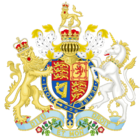Oaths of Allegiance, etc., and Relief of Jews Act 1858 facts for kids

|
|
| Long title | An Act to substitute One Oath for the Oaths of Allegiance, Supremacy, and Abjuration; and for the Relief of Her Majesty's Subjects professing the Jewish Religion |
|---|---|
| Citation | 21 & 22 Vict. c. 48 |
| Introduced by | Lord John Russell |
Quick facts for kids Dates |
|
| Royal assent | 23 July 1858 |
| Repealed | 13 July 1871 |
| Other legislation | |
| Repealed by | Promissory Oaths Act 1871 |
| Relates to | Jews Relief Act 1858 |
|
Status: Repealed
|
|
| History of passage through Parliament | |
| Text of statute as originally enacted | |
The Oaths Act of 1858 was an important law passed in the United Kingdom. It changed how people promised loyalty to the King or Queen. Before this act, people in public jobs had to take several different oaths. This new law made it simpler by combining them into just one promise. The act also helped people of the Jewish faith.
Contents
What Was the Oaths Act of 1858?
The Oaths Act of 1858 (also known as the Oaths Bill) was a law from the UK Parliament. It was passed on July 23, 1858. The main goal of this law was to replace three old promises, called "oaths," with a single new one. This new oath was a promise of loyalty to the British monarch.
Why Were Old Oaths a Problem?
Before 1858, if you wanted to work in government or hold a public office, you had to take three different oaths. These were:
- The Oath of Allegiance: This was a promise to be loyal to the King or Queen.
- The Oath of Supremacy: This oath made you agree that the monarch was the head of the Church of England.
- The Oath of Abjuration: This oath was against Jacobitism. Jacobitism was a movement that supported the return of the old royal family (the Stuarts) to the throne.
These oaths caused problems for some people. For example, the Oath of Supremacy was difficult for people who were not part of the Church of England.
Who Did This Act Help?
The 1858 Oaths Act was especially helpful for British Jews. Before this law, Jewish people faced challenges in holding public office because of the old oaths. This act made it easier for them to participate in public life.
The act also had special rules for Quakers. Quakers are a religious group who often prefer to make a serious promise (called an "affirmation") instead of taking an oath.
However, this act did not apply to Roman Catholic Members of Parliament (MPs). They had their own rules from an earlier law, the Roman Catholic Relief Act 1829.
Later Changes to Oaths
The Oaths Act of 1858 was part of a series of changes.
- In 1859, a small change was made to the wording of the Quaker affirmation.
- Then, in 1866, the Parliamentary Oaths Act 1866 changed the oath specifically for people taking seats in the House of Commons or the House of Lords.
The Oaths Act of 1858 and the 1859 amendment were later replaced. This happened in 1871 with a new law called the Promissory Oaths Act 1871.
 | Claudette Colvin |
 | Myrlie Evers-Williams |
 | Alberta Odell Jones |

